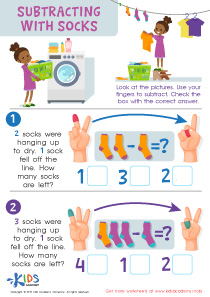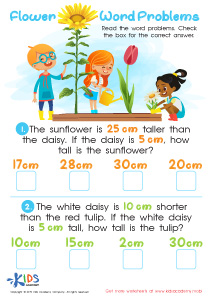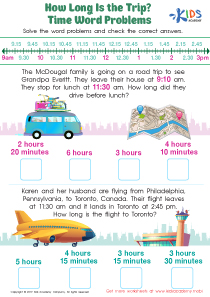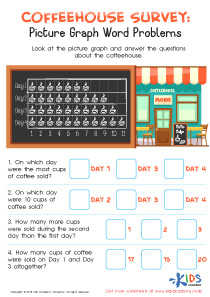Easy Two-step Word Problems Worksheets for Ages 3-7
5 filtered results
-
From - To
Discover our engaging "Easy Two-step Word Problems Worksheets for Ages 3-7"! Designed to enhance early math skills, these worksheets introduce young learners to the fun of problem-solving through relatable scenarios. Each worksheet presents simple two-step word problems that challenge kids to think critically and apply basic math concepts. With vibrant illustrations and kid-friendly language, these worksheets inspire creativity and curiosity. Plus, they improve reading comprehension while boosting confidence in math! Perfect for at-home practice or classroom activities, our worksheets provide a valuable resource for teachers and parents alike. Help your child become a confident problem solver today!
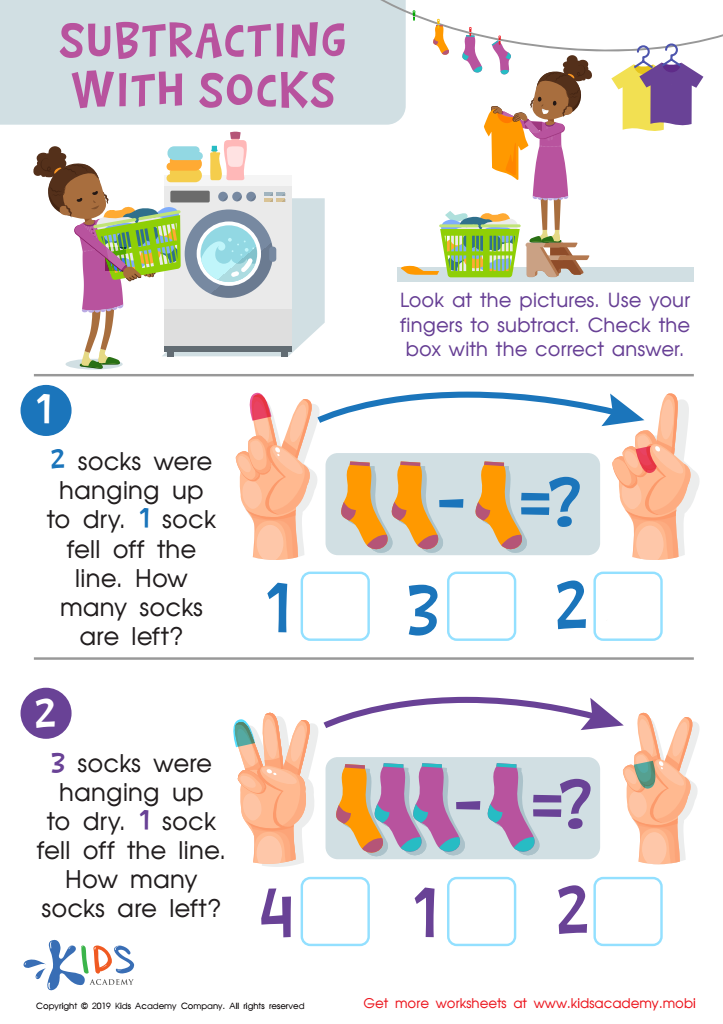

Subtracting Socks Worksheet
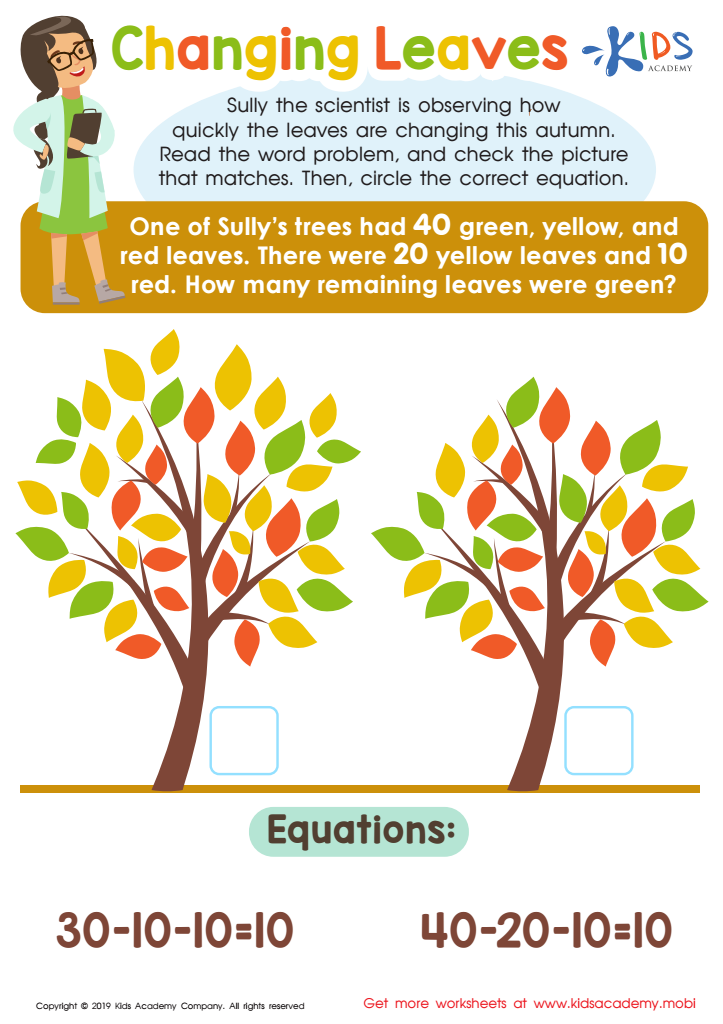

Changing Leaves Worksheet


Counting Seedlings Worksheet
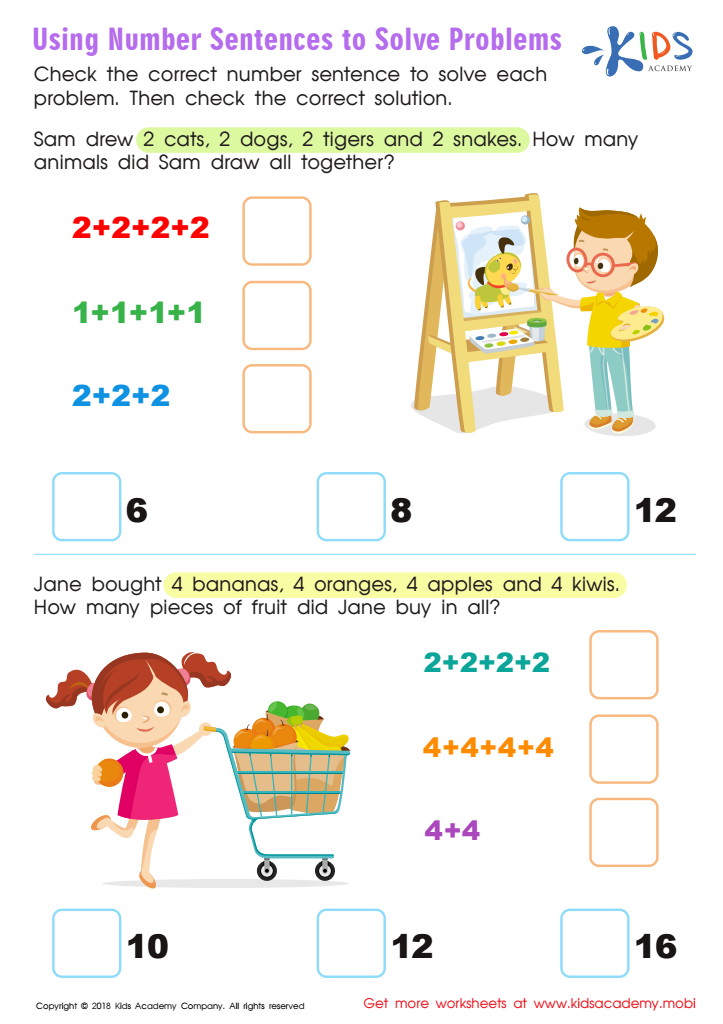

Using Number Sentences to Solve Problems Worksheet
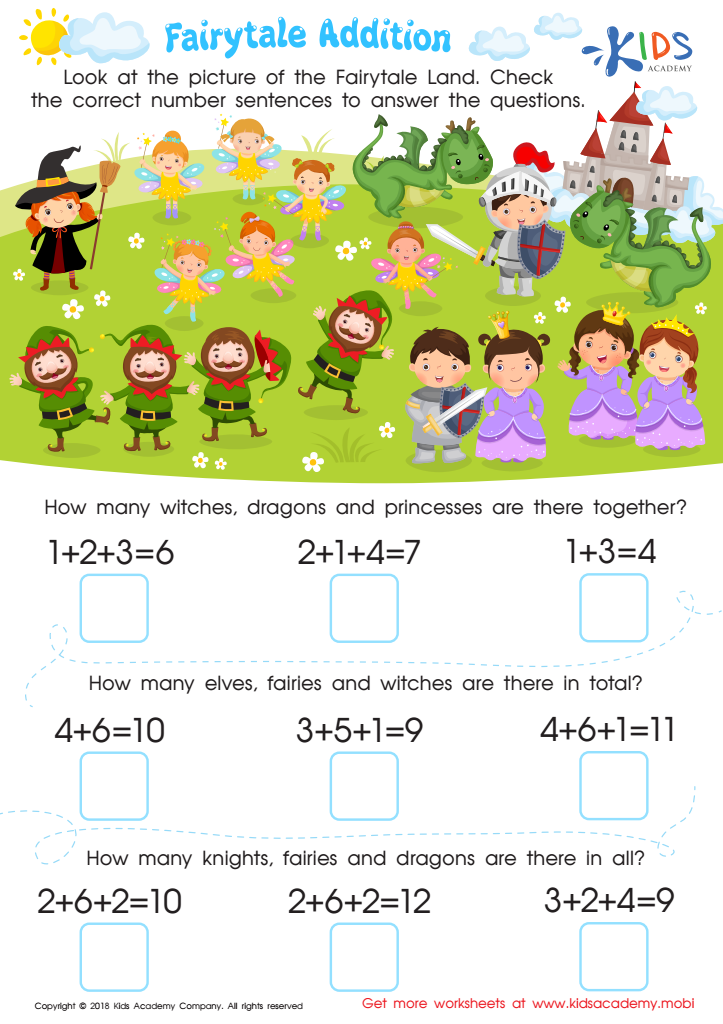

Fairytale Addition Worksheet
Easy two-step word problems are essential for early learners ages 3-7 as they represent a critical foundation for developing mathematical reasoning and problem-solving skills. At this stage, children are not only building basic numeracy skills but are also enhancing their ability to comprehend instructions, identify relevant information, and find solutions. Engaging with these problems encourages kids to use their cognitive abilities to analyze sequential steps, promoting logical thinking.
Parents and teachers should prioritize these two-step word problems because they foster higher-order thinking. These activities help children learn to break down complex information into manageable parts, a skill that extends beyond math. Moreover, solving word problems nurtures their language skills, encouraging them to articulate their thinking and reasoning clearly.
Additionally, this type of learning enhances collaboration and discussion when children work with peers or adults. Addressing word problems in pairs or groups cultivates social skills and confidence in sharing ideas. Lastly, fostering problem-solving early instills a love for math, making children more enthusiastic, confident learners. Engaging with easy two-step word problems sets the stage for future academic success and lifelong learning.
 Assign to My Students
Assign to My Students




